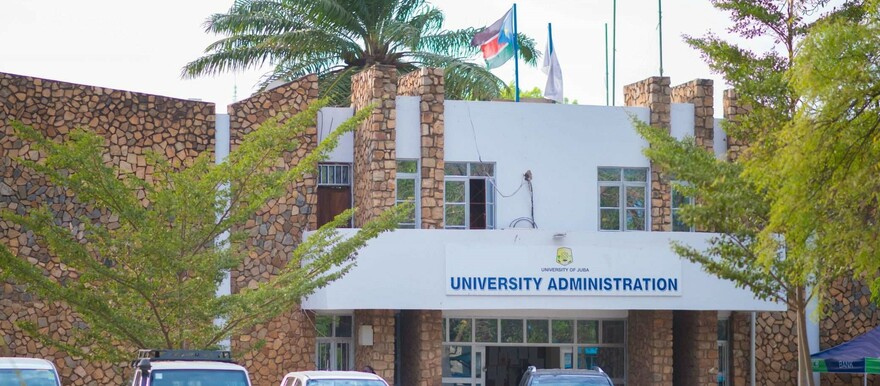Dear Education Minister Awut Deng Acuil, I am delighted to be writing to you during the time when students are sitting for the Certificate of Secondary Education (CSE). Firstly, I would like to express my appreciation to you and your team at the Ministry of General Education and Instruction (MoGEI) for closely monitoring the examinations and tightening exam security to prevent irregularities and cheating cases, in contrast to past examinations. Congratulations on a job well done!
Returning to the main content of this article, I will briefly discuss the issue of low enrollment at the Colleges of Education across the five public universities in the country. When visiting the five public universities, especially the Colleges of Education, one may wonder who is teaching in secondary schools. This is due to low enrollment and minimal number of students produced by these institutions each year. Here is a glimpse of the current situation: in two out of the five public universities, Dr. John Garang Memorial University of Science and Technology and the University of Juba, the number of students in their fourth year College/School of Education is 11 and 62 respectively, with less than 3 or 8 students in each of the science departments.
Unfortunately, the number of students in the Colleges of Education in the other three universities is similarly low. The reluctance of students to choose teaching as a profession is due to the fact that teachers are poorly paid in the country, and no student wants to pursue a career that will not bring good returns. They see teaching as a career that breeds poverty. Every time there is a graduation, such as the recent one at the University of Juba, over 75% of the graduates come from the School of Business, Economics, Community Studies & Rural Development, etc. As the number of graduates in the country rapidly increases, together with the rate of unemployment, a majority of these graduates end up teaching in secondary schools after failing to secure jobs related to their careers.
Although this is not necessarily a bad thing, as they contribute to improving the quality of education, they lack the necessary teaching methodologies such as how to prepare lesson plans, schemes of work, and how to deliver content to the students. To make the article more precise, I suggest the following recommendations for increasing admission to Colleges of Education in the five public universities:
1. Offer scholarships for education students at the five public universities: Establish a policy of awarding full scholarships to students aspiring to education careers. Upon graduation, they would sign an agreement with the Ministry of General Education and Instruction (MoGEI) to teach in designated secondary schools for 3-5 years, depending on the scholarship’s value.
2. Increase salaries and benefits for science teachers to make the profession more competitive. This will likely motivate more students to pursue education in science fields like Physics, Biology, Chemistry, and Mathematics.
3. Strengthen Teachers Training Colleges by partnering with NGOs to provide support. This would enable teachers with bachelor’s degrees not related to education to get a one-year teaching certificate, while those with secondary school certificates could enroll for diplomas in education in both arts and sciences.
4. Increase admissions to Colleges of Education in all five public universities, even for students who did not initially choose education courses. For example, in 2007, I was admitted to the University of Juba, College of Education’s Department of Physics and Mathematics, even though I didn’t choose education on the form. Only five of us in the department received the then government of South Sudan’s scholarship for nationals with foreign certificates. While it was unexpected, I seized the opportunity and became a teacher, a decision I have no regrets about.
5. Build at least one science laboratory (encompassing all four subjects: Physics, Biology, Chemistry, and Agriculture) in every county in South Sudan. While the budget may seem daunting, consider breaking down the project and engaging your ministry, partners, and well-wishers for support. Once these 79 laboratories are built and equipped, students from secondary schools in the Payams can conduct practicals at designated times. As times passes and the Ministry receives more funding, this initiative can be expanded to Bomas or schools within those Bomas.
6. Make agriculture a compulsory subject in secondary schools instead of CRE. While I anticipate resistance to this proposal, particularly from a religious perspective (“honestly, we need to eat before we pray”), consider our vast arable land and low population. Surely, agriculture is the nation’s backbone, and integrating it into secondary school as a dedicated subject is crucial. The Ministry of General Education and Instruction (MoGEI), in collaboration with the Ministry of Agriculture and Food Security, can establish a robust agricultural college focused on practical skills. This vocational school would encompass animal production, crop husbandry, and mechanization, employing modern methods. Such an institute could award diplomas and certificates in agriculture, empowering future generations to cultivate our land and feed our nation.
To summarize, I urge you to personally visit all five public universities, especially their Colleges of Education. Witnessing the low enrollment firsthand will underscore the urgency of this matter. Remember, these students will automatically become your staff at the Ministry of General Education and Instruction after graduation.
Duom Peter is the author of children’s books for preprimary schools. He can be reached at duomchol@yahoo.com
The views expressed in ‘opinion’ articles published by Radio Tamazuj are solely those of the writer. The veracity of any claims made is the responsibility of the author, not Radio Tamazuj.




